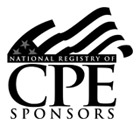
View Details/Register
View Details/Register
View Details/Register
View Details/Register
View Details/Register
View Details/Register
View Details/Register
View Details/Register
View Details/Register
View Details/Register



CPA - medium firm
CPA - large firm
The idea is the easy part, the funding is the hard part. To build and grow a tech company, innovators must secure adequate capital.
The R&D tax credit is a dollar-for-dollar federal incentive that grows with your client. As a small start-up, clients can benefit from the payroll R&D tax credit and as the company expands, software clients can move on to claim the standard R&D tax credit. From "angel" to "unicorn," this powerful credit allows software firms of all sizes to hire new employees, expand technologies, and finance new innovations.
Learning Objectives:
- Identify how the R&D tax credit can bring benefit to a software firm of any size, and that the benefit may be carried forward for up to 20 years, becoming a reliable source of capital
- Recognize the 4-part test and 3-part high threshold of innovation test list for what activities and expenses qualify for the R&D tax credit in the software industry
- Outline how the payroll R&D tax credit differs from the standard R&D tax credit
- Evaluate the importance of sufficient documentation in claiming either form of the credit

Jacob Wood, JD
Capstan Tax Strategies
Regional Director of Business Development
[email protected]
(215) 885-7510
Jacob Wood likes to get into the trenches with his clients.
As Regional Director of Business Development, Jacob works closely with his clients – planning with them, building with them, and celebrating with them. Jacob prides himself on creating long-term relationships, not short-term sales, and his analytical skills and financial expertise allow him to function strategically as a trusted advisor.
In the last decade, Jacob has personally performed or overseen over 2,000 R&D Tax Credit studies, identifying and substantiating over $800 million in federal and state tax credits. Additionally, he specialized in creating excellent experiences for his clients and their friends, engaging hundreds of clients by direct referral. The majority of Jacob’s clients have also gone on to become multi-year partners.
Jacob is a Subject Matter Expert in R&D Tax Credit Law, Canadian SR&ED Credits, and Cost Segregation. He is also a SME in the Architecture, Engineering, Construction, Manufacturing, Software, and Life Sciences industries, though he confesses to a special interest in robotics and automation.
A self-described “lifelong student,” Jacob is continually sharpening his technical skills. He freely admits to loving math, reading The Economist, and considering tax law a “fun hobby.” Jacob is first and foremost a people-person, and using his knowledge to help clients in a positive, productive way is what he finds truly gratifying.
A member of the Texas Bar Association, Jacob holds a Juris Doctor degree from the Indiana University Maurer School of Law and a Bachelor of Arts degree from Duke University.
Happily married to his college sweetheart, Jacob is a busy father of four. In his scant free time, Jacob enjoys running, cooking, and introducing his kids to classic 1980s movies.
- To receive CPE credit, you must register for the webinar before it starts.
- CPE is available to all eligible participants within 24 hours of each webinar.
- To receive CPE for multiple attendees, at least one person must sign up for the webinar. The post-webinar email contains a link to instructions for the proctor letter. Alternatively, you may log in to your account following the webinar and click on the MY ACCOUNT button to find a link to instructions. For paid courses, payment needs to be made for each attendee before credit will be issued.

NASBA Approved
CPAacademy.org (Sponsor Id#: 111889) is registered with the National Association of State Boards of Accountancy (NASBA) as a sponsor of continuing professional education on the National Registry of CPE Sponsors. State boards of accountancy have final authority on the acceptance of individual courses for CPE credit. Complaints regarding registered sponsors may be submitted to the National Registry of CPE Sponsors through its website: www.nasbaregistry.org.
CPAacademy.org 1685 S. Colorado Blvd, Suite #205, Denver, CO 80222




